detail profile john skipper

Info Pribadi
Peran Yang Di Mainkan John Skipper
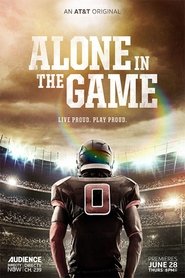 This inspirational documentary follows a number...
This inspirational documentary follows a number...Alone in the Game 2018
This inspirational documentary follows a number of LGBTQ athletes, including Robbie Rogers (Major League Soccer), Layana White (NCAA basketball player), Gus Kenworthy (freestyle skier and Olympic silver medalist), Megan Rapinoe (soccer, Olympic gold medalist), and Trevor Betts, a trans high school athlete, charting their social and legal challenges within the schools, sports leagues, and within their own families, as well as their triumphs in the face of great adversity.
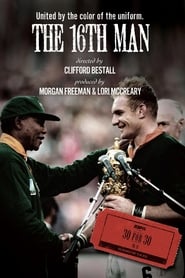 Rugby Union has long been viewed...
Rugby Union has long been viewed...The 16th Man 2010
Rugby Union has long been viewed in South Africa as a game for the white population, and the country’s success in the sport has been a true source of Afrikaner pride. When the 50-year-old policies and entrenched injustices of apartheid were finally overthrown in 1994, Nelson Mandela’s new government began rebuilding a nation badly in need of racial unity. So the world was watching when South Africa played host to the 1995 Rugby World Cup. Though they had only one non-white player, the South African Springboks gained supporters of all colors as they made an improbable run into the final match where they beat the heavily favored New Zealand team. When Mandela himself marched to the center of the pitch cloaked in a Springbok jersey and shook hands with the captain of the South African team, two nations became one. Oscar winner Morgan Freeman and director Cliff Bestall will tell the emotional story of that cornerstone moment and what it meant to South Africa’s healing process.
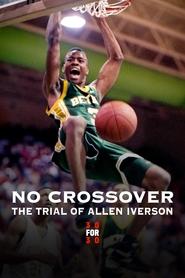 Director Steve James returns to his...
Director Steve James returns to his...No Crossover: The Trial of Allen Iverson 2010
Director Steve James returns to his home town of Hampton, Virginia to tell the story of how the trial of a young basketball star left a city divided.
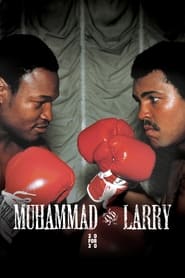 In October of 1980 Muhammad Ali was...
In October of 1980 Muhammad Ali was...Muhammad and Larry 2009
In October of 1980 Muhammad Ali was preparing to fight for an unprecedented fourth heavyweight title against his friend and former sparring partner Larry Holmes. To say that the great Ali was in the twilight of his career would be generous; most of his admiring fans, friends and fight scribes considered his bravado delusional. What was left for him to prove? In the weeks of training before the fight, documentarians Albert and David Maysles took an intimate look at Ali trying to convince the world and perhaps himself, that he was still “The Greatest.” At the same time, they documented the mild-mannered and undervalued champion Holmes as he confidently prepared to put an end to the career of a man for whom he had an abiding and deep affection
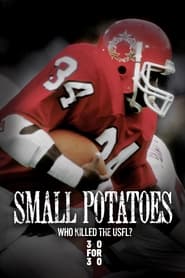 In 1983 the upstart United States Football...
In 1983 the upstart United States Football...Small Potatoes: Who Killed the USFL? 2009
In 1983 the upstart United States Football League (USFL) had the audacity to challenge the almighty NFL. The new league did the unthinkable by playing in the spring and plucked three straight Heisman Trophy winners away from the NFL. The 12-team USFL played before crowds that averaged 25,000, and started off with respectable TV ratings. But with success came expansion and new owners, including a certain high profile and impatient real estate baron whose vision was at odds with the league’s founders. Soon, the USFL was reduced to waging a desperate anti-trust lawsuit against the NFL, which yielded an ironic verdict that effectively forced the league out of business. Now, almost a quarter of a century later, Academy Award-nominated and Peabody Award-winning director Mike Tollin, himself once a chronicler of the league, will showcase the remarkable influence of those three years on football history and attempt to answer the question, “Who Killed the USFL?”
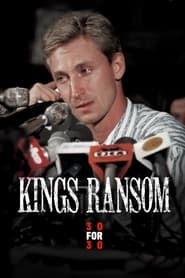 On August 9 1988 the NHL was forever...
On August 9 1988 the NHL was forever...Kings Ransom 2009
On August 9, 1988, the NHL was forever changed with the single stroke of a pen. The Edmonton Oilers, fresh off their fourth Stanley Cup victory in five years, signed a deal that sent Wayne Gretzky, a Canadian national treasure and the greatest hockey player ever to play the game, to the Los Angeles Kings in a multi-player, multi-million dollar deal. As bewildered Oiler fans struggled to make sense of the unthinkable, fans in Los Angeles were rushing to purchase season tickets at a rate so fast it overwhelmed the Kings box office. Overnight, a franchise largely overlooked in its 21-year existence was suddenly playing to sellout crowds and standing ovations, and a league often relegated to “little brother” status exploded from 21 teams to 30 in less than a decade.
